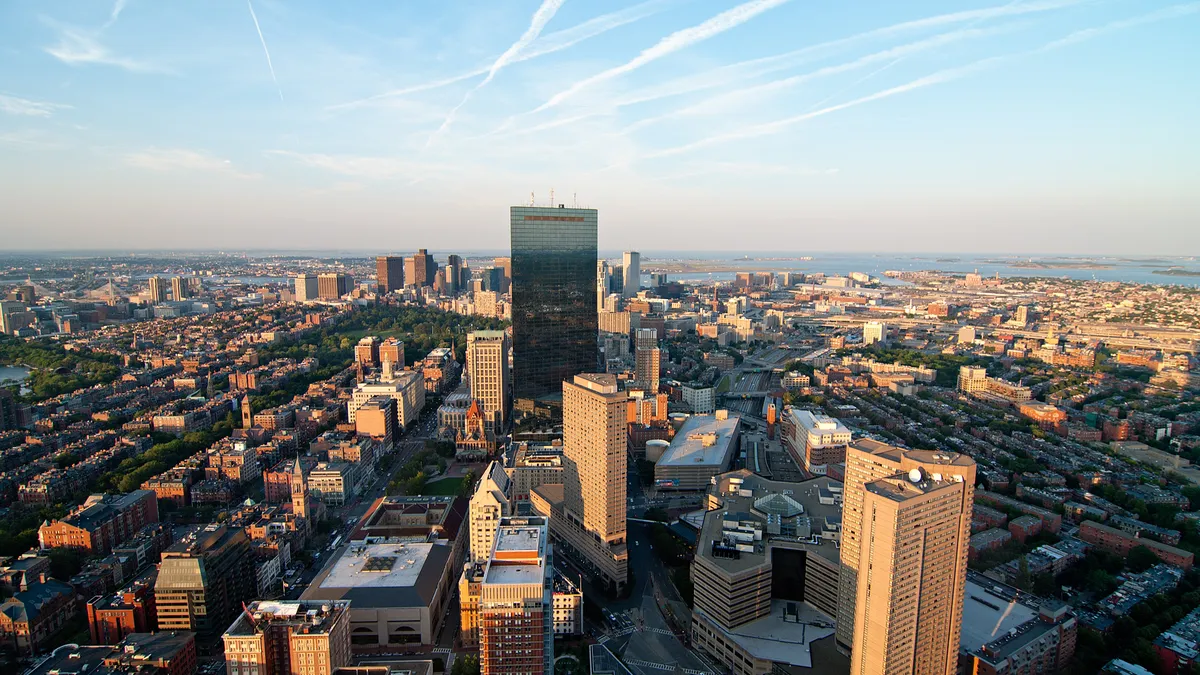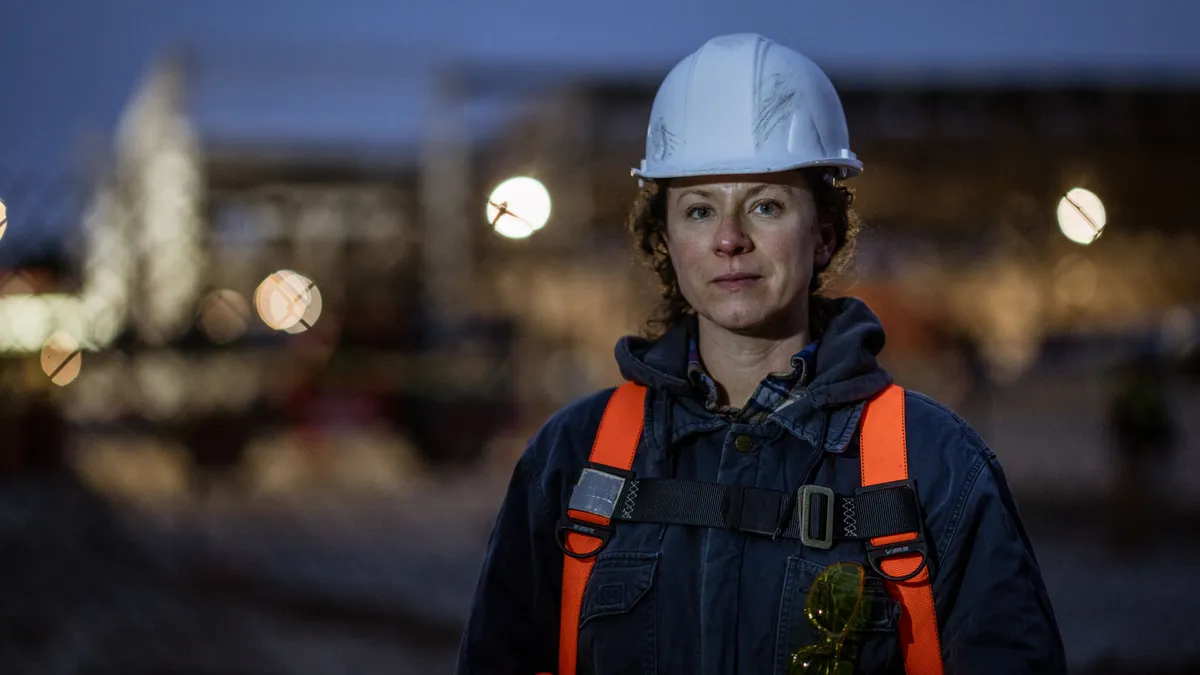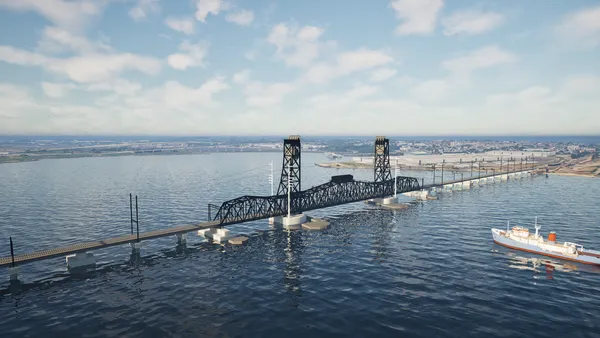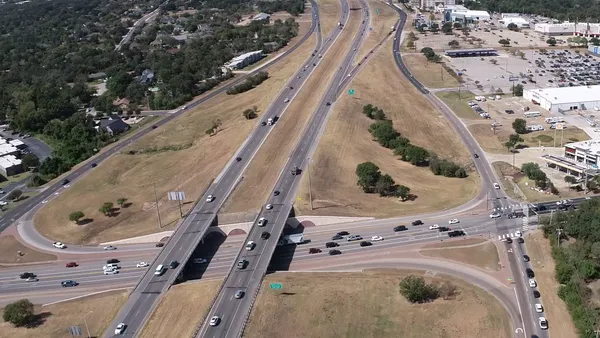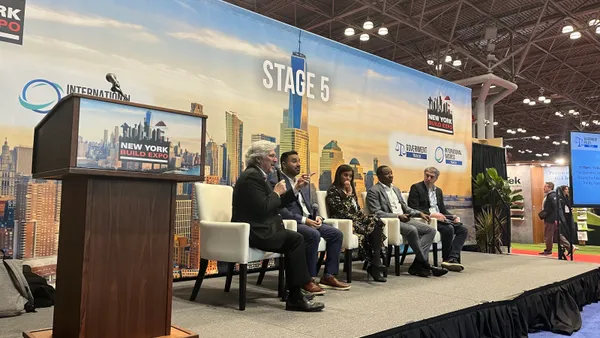Dive Brief:
-
Developer Millennium Partners is in negotiations with state and local officials to build a gondola system between Boston's South Station and the city's Seaport District, according to Curbed Boston.
-
Millennium said it will contribute $100 million for a cable-car system that could transport 15,000 people a day to help ease traffic congestion in the growing Seaport area, where it owns 12 acres.
-
The project is still in the conceptual stage, but supporters point to similar systems in New York City and Portland, OR, as examples of successful aerial trams. The Portland system runs 3,300 feet and cost $57 million to build. It is unknown how far — or how high — Millennium plans to run the proposed Seaport line.
Dive Insight:
Growing cities like Boston are desperate to find ways to ease traffic congestion. Another major transportation project in that city, the $2.3 billion Green Line light-rail extension, has seen some progress in recent months though hurdles have been plenty.
After firing the first project team at the end of 2015 in light of cost overruns nearing $1 billion, the Massachusetts Bay Transportation Authority went back to the drawing board, pared down the scope of the project and decided to move forward with a design-build strategy. The Federal Transit Administration approved the changes earlier this year, recommitting to its $1 billion grant.
The project hit another snag following an ownership shake up with its construction manager. The MBTA had hired CH2M Hill under a $57 million contract to manage the project. However, after Jacobs Engineering — a contender for the project's construction contract — announced its plans earlier this summer to purchase the company, the authority decided to terminate CH2M's contract to avoid a conflict of interest. The MBTA is now negotiating the deal with runner-up HAKS.
As the Green Line gets off the ground, another even bigger rail project is in the works for Boston's downtown: a three-mile underground line linking its North Station and South Station. One argument in favor of the project comes from a recent Harvard Kennedy School study, which said the line could cost less to build than initial estimates suggested. A separate study from the state Department of Transportation, however, will determine whether the line's benefits will outweigh its costs and help officials decide whether to move forward with the project.


